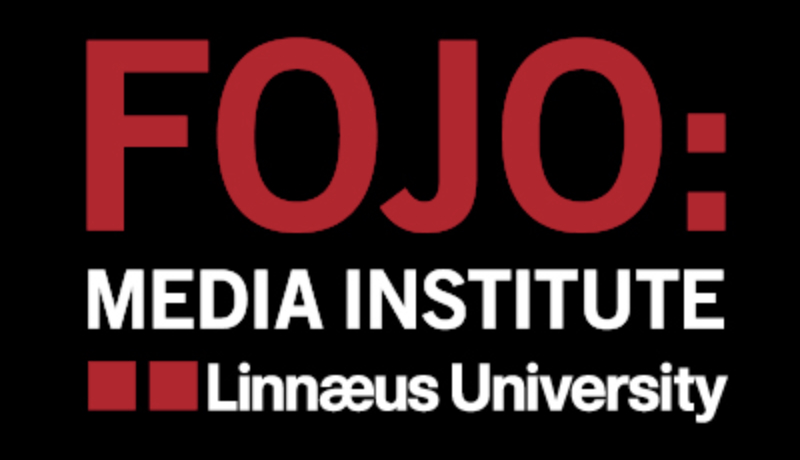
Media Helping Media is hosted by the Fojo Media Institute and is one of its official training resources.
From our BASIC JOURNALISM section
Referencing, attribution and plagiarism
Journalism often involves referring to material produced by others. This module looks at how journalists should provide attribution and avoid plagiarism.
Punctuation
Punctuation is designed to make reading easy. It is the written counterpart of those pauses and verbal inflections which make speech understandable.
From our EDITORIAL ETHICS section
Why editorial ethics are important
The Media Helping Media ethics section is designed to help journalists understand and navigate some of the challenges they are likely to face as they go about their work.
Impartiality in journalism
Being impartial means not being prejudiced towards or against any particular side. All journalists have their own views, however they must learn to leave aside their own personal perspectives.
From our ADVANCED JOURNALISM section
Media guide for spotting election irregularities
In its Election Reporting Handbook for journalists the International Federation for Journalists (IFJ) sets out a list of what journalists should look out for when covering elections.
Editing audio for radio news
We edit audio because we do not always have the time on air to broadcast a whole interview, but it's important we do it well.
 Unfortunately, Facebook has decided to disable our Media Helping Media Facebook group. Our Facebook page is still live.
Unfortunately, Facebook has decided to disable our Media Helping Media Facebook group. Our Facebook page is still live.
 Do you have any wisdom to share with those without access to formal training? If so please get in touch.
Do you have any wisdom to share with those without access to formal training? If so please get in touch.
 Media Helping Media (MHM) provides free training resources for those starting off in journalism. Read more …
Media Helping Media (MHM) provides free training resources for those starting off in journalism. Read more …
 The content on Media Helping Media (MHM) is released via Creative Commons BY NC SA 4.0. Please read the MHM copyright terms.
The content on Media Helping Media (MHM) is released via Creative Commons BY NC SA 4.0. Please read the MHM copyright terms.
10 tips for investigating corruption
An investigative journalist has to plot the geometry of bribery, determine the currency of influence, document the paper trail, and deal with threats and retaliation when investigating corruption.
20 ways a suspect can help a journalist
Sources are one of the most valuable resources for a journalist. Without sourced information, the reports produced may end up being padded with rumour and personal opinion.
Avoiding the pitfalls of investigative journalism
Producing a piece of investigative journalism to international standards can be a daunting prospect. This guide is to help journalists avoid some of the pitfalls and problems often encountered.
Social media in news production and news dissemination
Social media is an increasingly disruptive force on the media landscape. It challenges traditional, mainstream media to reconsider how they operate.
Editorial considerations when a ‘big story’ breaks
When a big story breaks the following editorial considerations should be assessed.
The important role of the news producer
The news producer has an essential role to play in any news organisation. Their job is to add depth to the content being produced, make sure it is well-researched and oversee quality control.
Setting up a media business – four essential steps
A media business is like a table with four legs. These are the media organisation's target audience, the core editorial proposition that it offers to that audience, the values that the business holds dear, and the market that sustains the business. Each leg has to be strong and firm. If one leg is weak, the table wobbles. A shaky media organisation is not good.
Creating a distinctive radio station sound
A radio station needs to have a unique and consistent sound and deliver content that the listeners can relate to. Developing a station's voice can help increase reach, ratings and impact.
Identifying the target audience and its information needs
The first step in setting up a media business is to identify the audience you plan to serve. You need to know their information needs so that you can better serve them.
Interviewing integrity – scenario
An editorial integrity scenario where a journalist on a large salary faces the dilemma of whether to compromise their editorial integrity, become a whistleblower, or resign. What would you do?
Off-the-record chat – scenario
What should a journalist do with off-the-record information? Should they agree to conditions on its use? Should they ignore any conditions and do the story anyway? Or should they use what they have been told as background information and dig further? Try our scenario and decide what you would do in the circumstances.
Privacy protection – scenario
You are working on the online news desk of a large media organisation. News breaks of fighting overseas. Raw footage arrives showing identifiable dead bodies. What do you do?
Basic rules for delivering training
One of the first steps in delivering training is to articulate the ground rules. Participants need to know what to expect, what is expected of them and how you intend to schedule course elements.
How to design a successful media training plan
A well-designed media training plan could make the difference between the success and the failure of a media business. Get it wrong and you could be adding to the problems you were asked to address.
12 tips for international media trainers
Those invited to help the media overseas need to ensure that the training they offer is continually refreshed so that it's up-to-date and sensitive to local issues and better addresses local needs.




